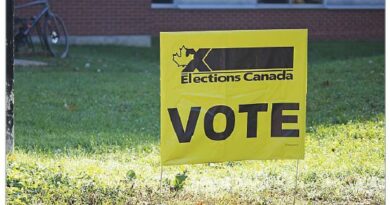Federal Government hopeful
to extend a “lifeline” to businesses
TORONTO – Black Friday sales aside, now Cyber Monday deals entice customers to spend as the holidays draw near. However, small businesses are still reeling from the impacts of Covid-19 and the ongoing labour shortages combined with supply chain disruptions present further challenges in trying to build back lost revenue over the past 19 months.
According to the Canadian Federation of Independent Business (CFIB), about 61% of small businesses have yet to meet their pre-pandemic revenues. Another 22% say they will not make it passed another six months at the current level of revenue loss. Time may be running out.
Unfortunately, time has already run out for some Covid-19 support recipients. But, during the first week of the new parliamentary session, the Federal government tabled a new pandemic aid bill intended to extend financial supports for eligible businesses and employees until next spring.
If passed, Bill C-2 would allow the government to deliver targeted pandemic supports, measures previously announced in October 2021, to businesses still experiencing significant pandemic-related challenges.
Among the bill’s measures are the Tourism and Hospitality Recovery Program (THRP) and the Hardest-Hit Business Recovery Program (HBRP). As the public health situation continues to be unpredictable, these measures were designed to provide aid through wage and rent subsidies.
For instance, the THRP was designed to help businesses like hotels, restaurants, travel agencies and tour operators with wage and rent subsidies of up to 75%.
In the case of the HBRP, it would provide similar supports of wage and rent subsidies of up to 50% for businesses in all other sectors.
However, businesses would have to show a 13-month revenue loss of at least 40% to be eligible for the THRP, or a 50% revenue loss to qualify for the HBRP.
Altogether, these programs would be extended until May 7, 2022, for a total estimated cost of about $7.4 billion.
While the extension of aid programs may provide much needed assistance for some firms, Dan Kelly, President of CFIB, maintains that “many businesses will find themselves unable to meet the revenue loss criteria”. The greater concern is that many of those who are struggling to stay open will not be able to hold on for much longer without support. He also added that the government failed to change the 40-50% minimum revenue loss requirement so that eligible firms may access small business support programs.
The CFIB urges the Federal Government to consider critical changes to the aid programs that would benefit small business owners. Some recommendations include lowering the threshold for all wage and rent supports to 10% for both the THRP and the HBRP, as is the case for the Canada Recovery Hiring Program.
Also, the CFIB asks that the wage/rent subsidy levels increase for all businesses to model the formula used for the THRP. That would mean 1% subsidy for every 1% drop in revenue from 10-75%.
Meanwhile, the battle to stem the spread of Covid-19 continues. As the number of positive cases trend in the wrong direction, the business community hopes the legislation passes quickly to ensure that small businesses severely impacted by the pandemic continue to receive the necessary supports.




